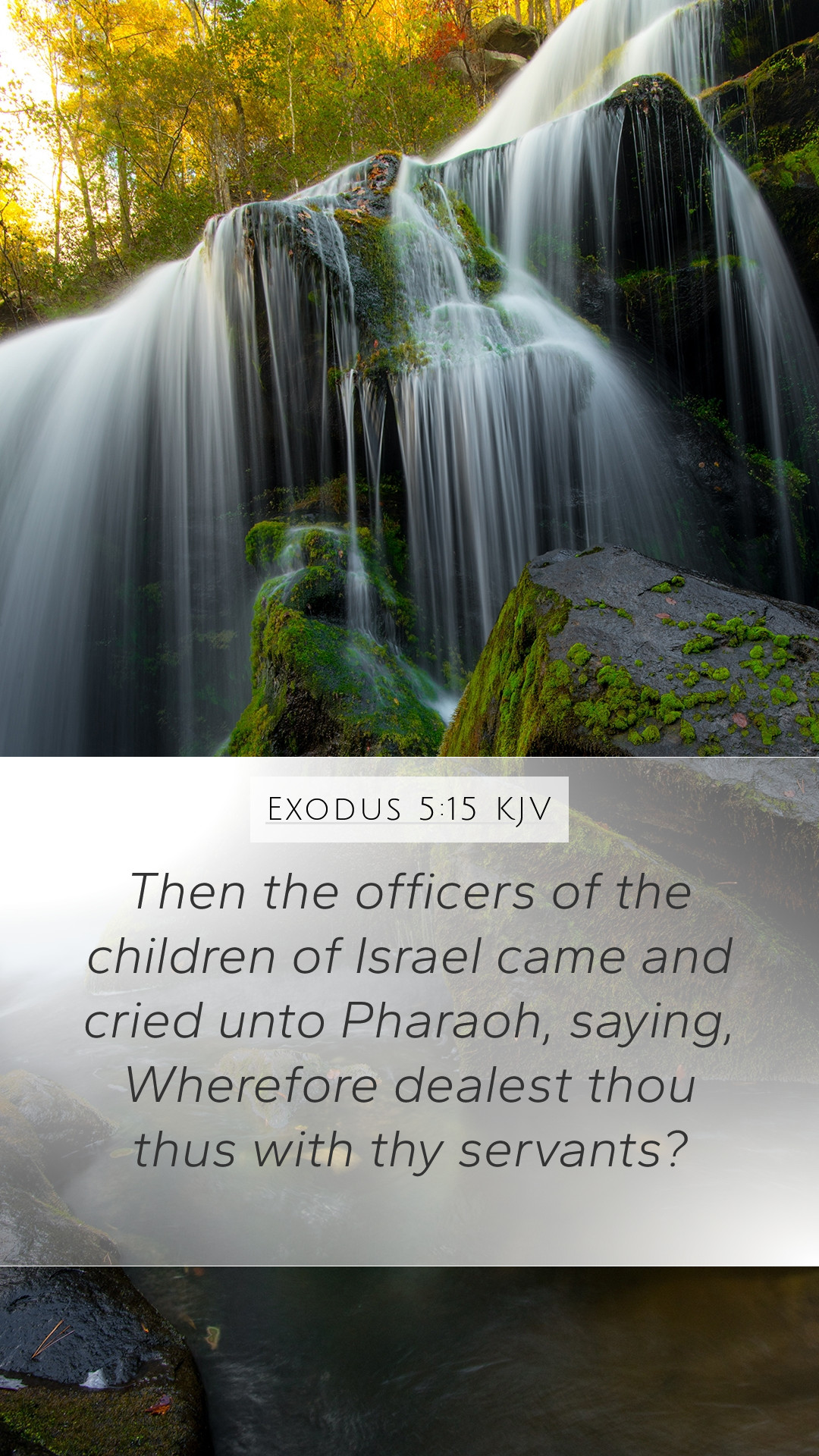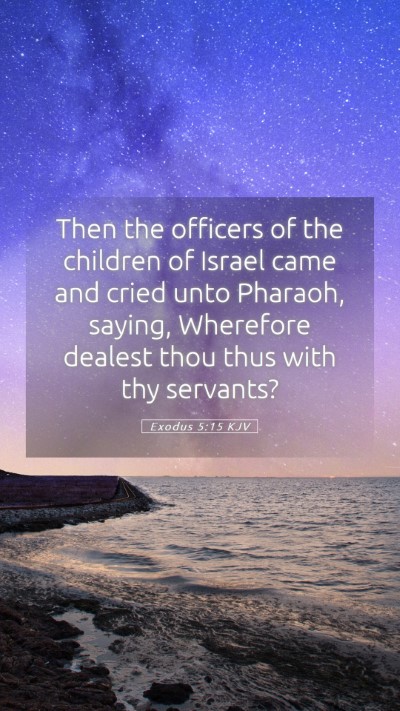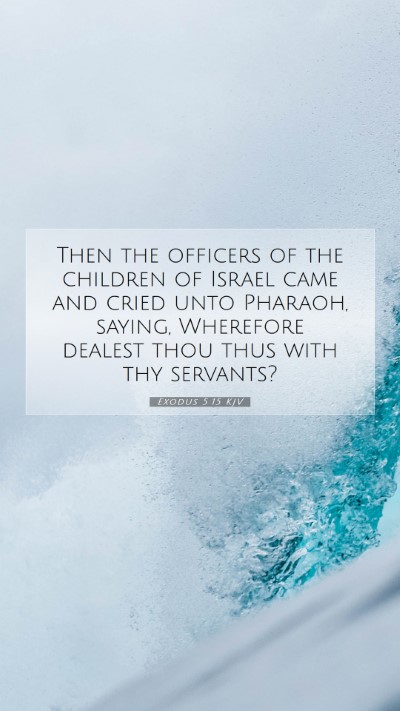Exodus 5:15: Bible Verse Meaning and Commentary
Exodus 5:15 states: "Then the officers of the children of Israel came and cried unto Pharaoh, saying, 'Why dealest thou thus with thy servants?'" This verse highlights a moment of desperation and entreaty from the Israelite officers, who appeal to Pharaoh in the face of harsh treatment. In this commentary, we will explore the profound meanings and implications of this scripture as presented by various public domain commentaries, including insights from Matthew Henry, Albert Barnes, and Adam Clarke.
Understanding the Context
To fully appreciate Exodus 5:15, we must consider the historical context in which this passage occurs. The Israelites were subjected to cruel labor under Pharaoh, which intensified after Moses and Aaron's initial request to let the people go. The contextual backdrop of their hardship provides essential insight into the emotional and spiritual weight of their plea.
Matthew Henry's Insights
Matthew Henry, in his commentary, reflects on the plight of the Israelite officers and notes the burden they carry. They approach Pharaoh not just as individuals but as representatives of a community enduring suffering. Henry emphasizes that their appeal indicates the moral duty of leaders to address injustice and oppression. He highlights that their cry shows the desperation that arises when human rights are violated, posing questions about authority and divine justice.
Albert Barnes' Perspective
Albert Barnes focuses on the role of the officers and their relationship with Pharaoh. He underscores the significance of their plea as a demand for mercy and recognition of their plight. According to Barnes, this verse illustrates the dynamics of power where those in authority sometimes overlook the suffering of others. Barnes also connects this moment to the broader theme of God's deliverance, foreseeing the eventual liberation of the Israelites from Egyptian bondage.
Adam Clarke's Elaboration
Adam Clarke provides a detailed exegesis of the text, offering a linguistic analysis of the original Hebrew terms. Clarke points out the implications of the word "dealest," which denotes both action and intent. He argues that Pharaoh's harsh treatment reflects a lack of compassion and humanity, aligning with Clarke's broader theological stance on the nature of rulers and divine justice. He contextualizes this verse within the larger narrative of Exodus, foretelling the impending confrontation between God and Pharaoh.
Practical Applications and Insights
Beyond the historical and theological contexts, Exodus 5:15 carries relevant applications for contemporary life. Here are some key insights:
- The Struggle Against Injustice: The verse serves as a reminder of the ongoing struggle against oppression throughout history, calling individuals and communities to stand against unjust leaders.
- The Importance of Advocacy: Just as the Israelite officers advocated for their rights, modern believers are encouraged to advocate for themselves and others facing injustices.
- Faith Amid Hardship: This scripture illustrates the importance of faith in God during difficult times, seeing beyond immediate circumstances to a promised deliverance.
- Leadership Accountability: Leaders are called to be aware of the effects of their decisions on those they lead, promoting justice and compassion.
Related Bible Cross References
- Exodus 3:7-10: God expresses concern for His people and their suffering.
- Exodus 1:13-14: The harsh treatment of the Israelites escalates under the Egyptian taskmasters.
- Exodus 6:5: God promises to remember His covenant with Israel, assuring their deliverance.
- Psalms 105:24-25: God multiplies the Israelites and sent adversity to their oppressors.
- Isaiah 19:20-22: A prophecy concerning Egypt's future suffering and God’s intervention.
Conclusion
In summary, Exodus 5:15 serves as a pivotal moment illustrating the suffering of the Israelites under Pharaoh's oppression and their pleas for justice. Through the insights from various commentaries, we gain a richer understanding of the themes of leadership, injustice, and the hope of redemption articulated throughout the Exodus narrative. This verse encourages contemporary readers to engage with issues of justice and advocacy, reflecting on how scripture can guide us in our daily lives.
For anyone engaged in Bible study groups, online Bible study, or utilizing Bible study tools, the study of Exodus 5:15 offers profound lessons that are profoundly applicable in our quest for justice and understanding God's will in our lives. This verse, along with its commentary and analysis, serves as a gateway into deeper Bible study insights and understanding Scripture.


